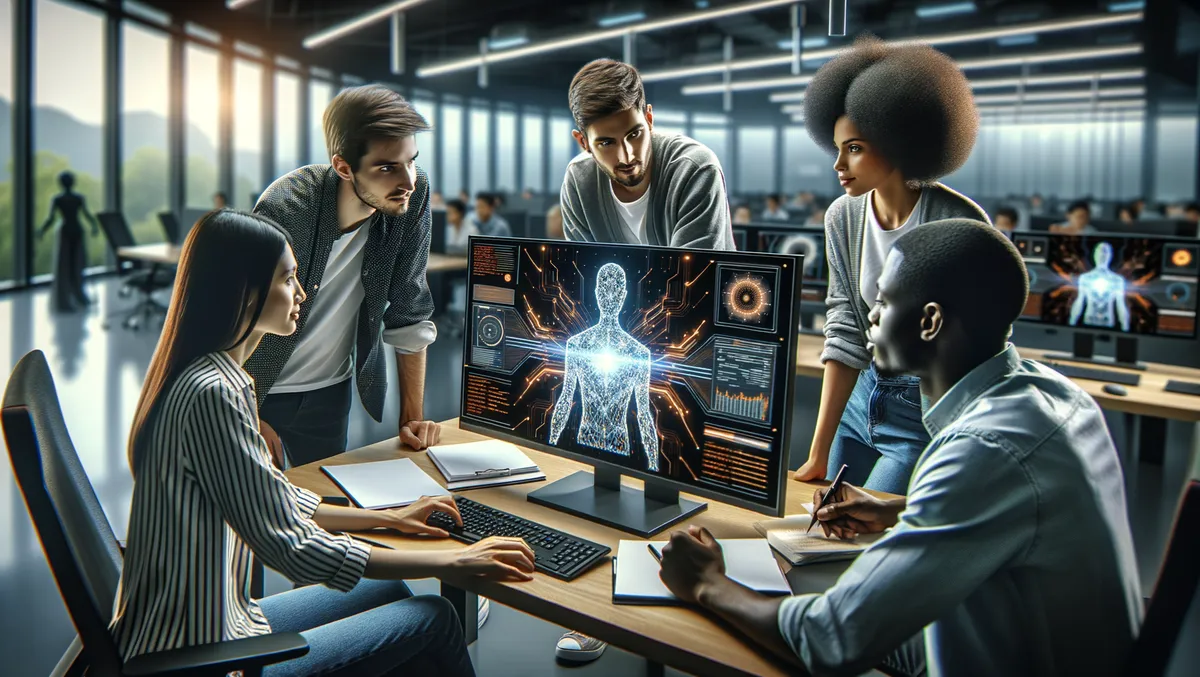
GitLab's DeSanto predicts AI revolutionising code testing by 2024
David DeSanto, Chief Product Officer at GitLab, an AI-powered DevSecOps platform, predicts significant changes driven by AI in software development for 2024.
These predictions claim that upwards of two-thirds of businesses are likely to incorporate AI capabilities into their products and services, with AI predicted to revolutionise code testing in 80% of organisations. However, DeSanto also warns of rising issues, including biased outputs and the potential introduction of vulnerabilities into code through AI tools.
In the immediate future, DeSanto expects a significant rise in AI bias before the situation begins to improve. He explained, "As most AI services scrape the internet to build training data, the inherent biases of the Internet will propagate into these offerings until needed controls can be added."
Despite this, DeSanto also foresees the industry establishing rigid ethical guidelines and training interventions in response, improving the discernment and impartiality of AI tools.
Moreover, AI is forecasted to dominate code testing workflows by 2024. DeSanto predicts that by the end of 2024, 80% of all code testing will be conducted with the help of AI, which could reach almost full automation within two years. He signalled that the transition will increase productivity and accuracy but will also require significant adjustments to traditional testing roles and practices.
But along with these advancements, DeSanto warns of an escalating threat to intellectual property (IP) and privacy in software security through AI-powered code creation. He indicated that "the risk of significant AI-introduced vulnerabilities and intellectual property loss emerging in the next year is high."
DeSanto stressed that unless privacy and IP protections are prioritised, IP leakage will persist and intensify with potentially catastrophic repercussions for software security, corporate confidentiality, and customer data protection.
Looking further ahead, DeSanto predicts that in 2024, the integration of AI into products and services will become standard practice. He said, "Integrating AI into products and services will become a standard, not a luxury."
"With organisations pushing the boundaries of efficiency through AI adoption, 2024 will be the year that more than two-thirds of businesses will embed AI capabilities within their offerings."
"This shift signifies a pivotal transformation, with companies evolving from mere users of AI to becoming AI-centric in how they deliver their solutions to their users, both internal stakeholders and customers," said DeSanto.
DeSanto recognised this as a pivotal transformation, with companies transitioning from mere AI users to becoming AI-centric in their approach to delivering solutions, emphasising that "This trend is not just about staying competitive; it's about survival, as AI becomes the engine driving innovation and customer value across all market sectors."
DeSanto's predictions are drawn from GitLab's 2023 Global DevSecOps Report series and suggest a future where AI plays a central role in software development while also highlighting the challenges and risks that need to be addressed in the process.


